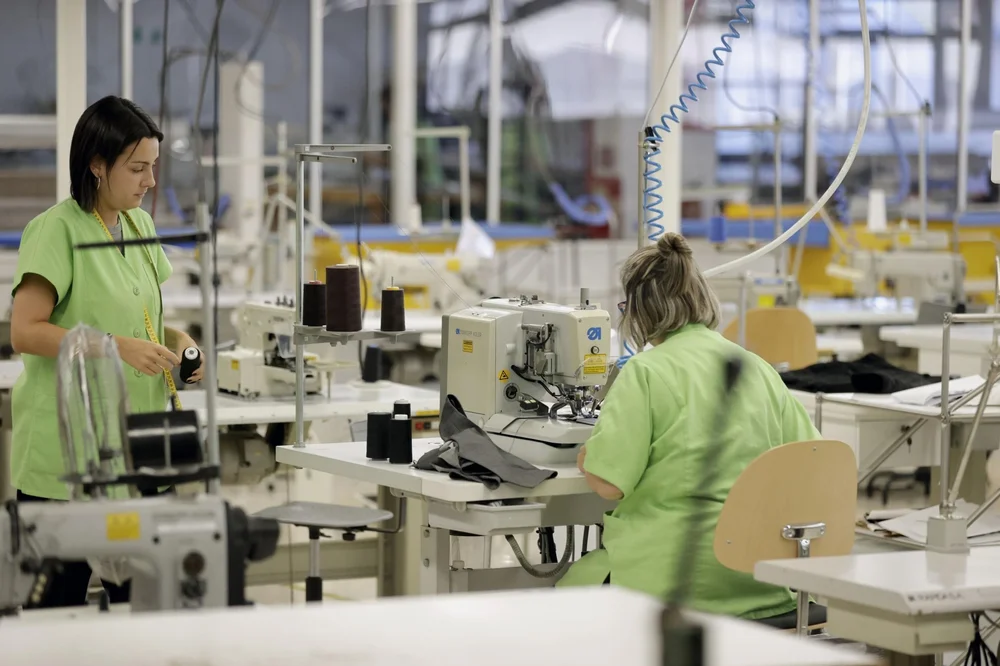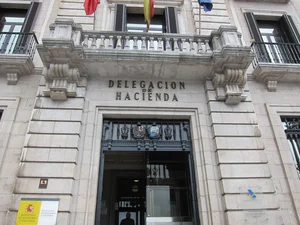Significant Wage Gaps Persist in Andalusia, Affecting Expats and Locals Alike

In the sun-kissed region of Andalusia, Spain, a stark contrast between luxury and livelihood has come to light, particularly in the affluent town of Marbella. Despite its reputation for opulence, with numerous luxury villas, sleek yachts, and high-end cars, Marbella is grappling with one of the lowest average salaries in the region.
Average Salaries in Marbella
In 2023, workers in Marbella earned an average gross annual salary of 18,197 euros, translating to a monthly salary of approximately 1,300 euros when divided into 14 payments. This figure places Marbella second to last among the 13 municipalities in Andalusia with over 100,000 inhabitants, just above Roquetas de Mar, which recorded an average annual salary of 16,797 euros[1].
Sectoral Influence on Salaries
The primary reason behind Marbella's low average salary is its heavy reliance on the services industry, particularly the hospitality and retail sectors. These sectors are among the lowest paid, with 47% of Marbella's workforce employed in bars, restaurants, and shops. In contrast, Granada, the city with the highest average salary in Andalusia, has a significantly lower proportion of its workforce in these sectors (less than 26%) and a higher percentage of public sector employees (32%), who enjoy average annual salaries close to 40,000 euros[1].
Seasonal Employment and Wage Increases
The seasonal nature of employment in Marbella, driven by tourism, further exacerbates the wage issue. Residents in Marbella work an average of 72% of the time it would take to work a full year, compared to 80% in Granada. Additionally, Marbella saw the smallest increase in average salaries in 2023, with a rise of only 3.2%, significantly lower than the Andalusian average of 6.3%[1].
Gender and Age Disparities
The wage gap in Andalusia is not limited to geographical differences but also extends to gender and age. Women in Malaga, for example, earn on average 3,774 euros less per year than their male counterparts, partly due to the prevalence of women in part-time and low-pay jobs such as cleaning, catering, and retail. Age is another significant factor, with salaries increasing substantially with years of experience; those under 30 earn half the salary of those over 60[1].
Regional Economic Context
While Marbella struggles with low salaries, the broader economic context in Andalusia and Spain offers some optimism. Spain has been making significant strides in economic growth and sustainability, with a focus on green energy and hydrogen. The country has become a global leader in renewable hydrogen, with 56% of its electricity production coming from renewable sources. This transition has led to the creation of thousands of jobs and has made electricity 30% cheaper than in many European countries[2].
Implications for Expats
For expats living in Andalusia, particularly in Marbella, understanding these salary dynamics is crucial. While the region offers a desirable lifestyle, the economic realities can be challenging. Expats may need to consider the seasonal nature of employment and the dominant sectors when seeking job opportunities. Additionally, the gender and age disparities highlight the need for a balanced and inclusive job market.
In conclusion, while Marbella's luxury facade hides underlying economic challenges, the broader regional and national efforts towards economic growth and sustainability offer a promising future for both locals and expats in Andalusia.
Related Stories

Spain Resets VAT on Staple Foods as Economic Measures Evolve
Spain to reset VAT on staple foods to pre-crisis levels in 2025, extending public transport subsidies and maintaining economic support measures.

Spanish Stock Market Closes 2024 on a High Note Despite Global Uncertainty
Despite global uncertainties, the Spanish stock market's IBEX 35 index soared, marking a year of impressive growth and resilience in 2024.

Spanish Tax Authority Initiates Refund Process for 2023 Tax Returns
The Spanish Tax Authority has launched the refund process for 2023 tax returns, with key dates from April 3 to July 1, 2024, offering crucial information for expats.

New Initiative to Boost Local Economy in Comillas, Cantabria
Comillas launches "Comillas Vale" initiative with 800 vouchers to boost local economy and community engagement, starting January 15, 2025.

Torrelavega Emerges as a Key Hub for Commerce and Industry in Cantabria
Torrelavega cements its role as Cantabria's industrial and commercial hub, with strategic investments and natural resources driving economic growth.